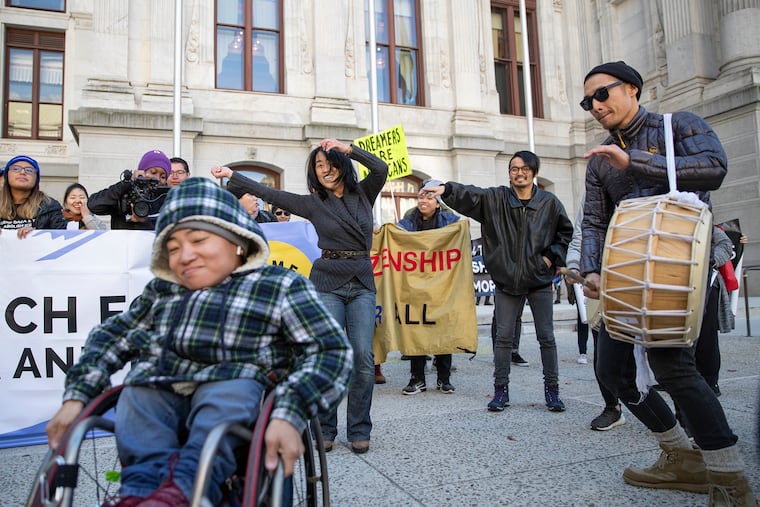Everything is at stake for ‘Dreamers’ as Supreme Court takes up DACA
Polls show overwhelming support for DACA recipients, from as many as nine in 10 Americans.

On Tuesday morning, the U.S. Supreme Court will hear arguments on one of the most consequential immigration cases of the Trump era. It will determine whether migrants who as children were illegally brought across the border by their parents should be allowed to live and work in the United States under the program known as DACA.
What exactly is DACA?
DACA stands for Deferred Action for Childhood Arrivals, established by President Barack Obama’s administration in 2012. Recipients do not receive citizenship or legal immigration status but can register for renewable two-year deferments from deportation. President Donald Trump ended DACA in September 2017, but lower courts blocked that termination to allow legal challenges to be heard.
Are DACA recipients and ‘Dreamers’ the same thing?
Yes. The nickname “Dreamers” sprang from the failed effort to pass the “Dream Act” legislation that would have permanently created a way to grant residency to undocumented immigrants who entered the country as children. Today, many DACA recipients reject the Dreamers moniker, saying that everyone who comes to America has a dream of a better life, not just them.
How many people are affected?
More than 700,000 DACA holders, who could be deported to countries they don’t know, where they’ve never lived, and where they may not speak the language. In addition, millions of people who are the parents, brothers, sisters, employers, and teachers of DACA recipients.
How many people with DACA live in the Philadelphia area?
Pennsylvania is home to 4,620 DACA holders and New Jersey to 16,832, according to the Migration Policy Institute, though other sources report higher numbers. Philadelphia, with its large immigrant communities, has served as the backdrop for rallies and marches aimed at saving DACA.
Isn’t DACA popular?
Polls show overwhelming support for DACA recipients, from as many as nine in 10 Americans. More than 140 leading businesses and trade associations submitted an amicus brief arguing the program should be kept, and predicting serious tax-revenue losses to the U.S. economy if the young people are forced to leave. Politically, there’s strong support in battleground states like Pennsylvania.
Then why end it?
Partly because of philosophy: The Trump administration has worked to end, reduce, or restrict the means by which migrants can enter the country — with or without official papers. Texas and 12 other states say DACA forces them to provide health care, education, and law enforcement services to people not legally in the country. DACA opponents say Obama had no legal authority to create the program because it had not been authorized by Congress and that the government must enforce immigration laws fairly, without exceptions based on age or circumstances.
What are the main issues for the court?
A key point is whether Obama had the power to create the program. The court also must decide whether it has jurisdiction to hear the case and, if so, whether the Trump administration’s decision was “arbitrary and capricious,” as lower courts have ruled — or within its executive powers. The justices agreed to hear challenges in three cases, and from individual DACA recipients and plaintiffs, including companies like Microsoft and colleges such as Princeton University. Princeton alumna María Perales Sánchez filed one of the first challenges.
How might the court rule?
Here are three possibilities laid out by the Immigration Hub, a national advocate for progressive immigration policies, although no one can know for sure:
The court finds it has no jurisdiction because the power to start or end DACA resides with the president. It grants the Trump administration’s motion to dismiss, and DACA comes to an end.
The court determines it does have jurisdiction and Trump’s termination of the program was unlawful. DACA lives, allowing recipients to continue to file renewals and for others who qualify to apply.
The court decides it has jurisdiction and Trump legally terminated DACA. In this scenario, the program ends, but the court’s reasoning could impact the timeline.
When is a decision due?
No later than June 2020.